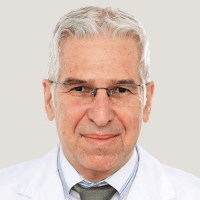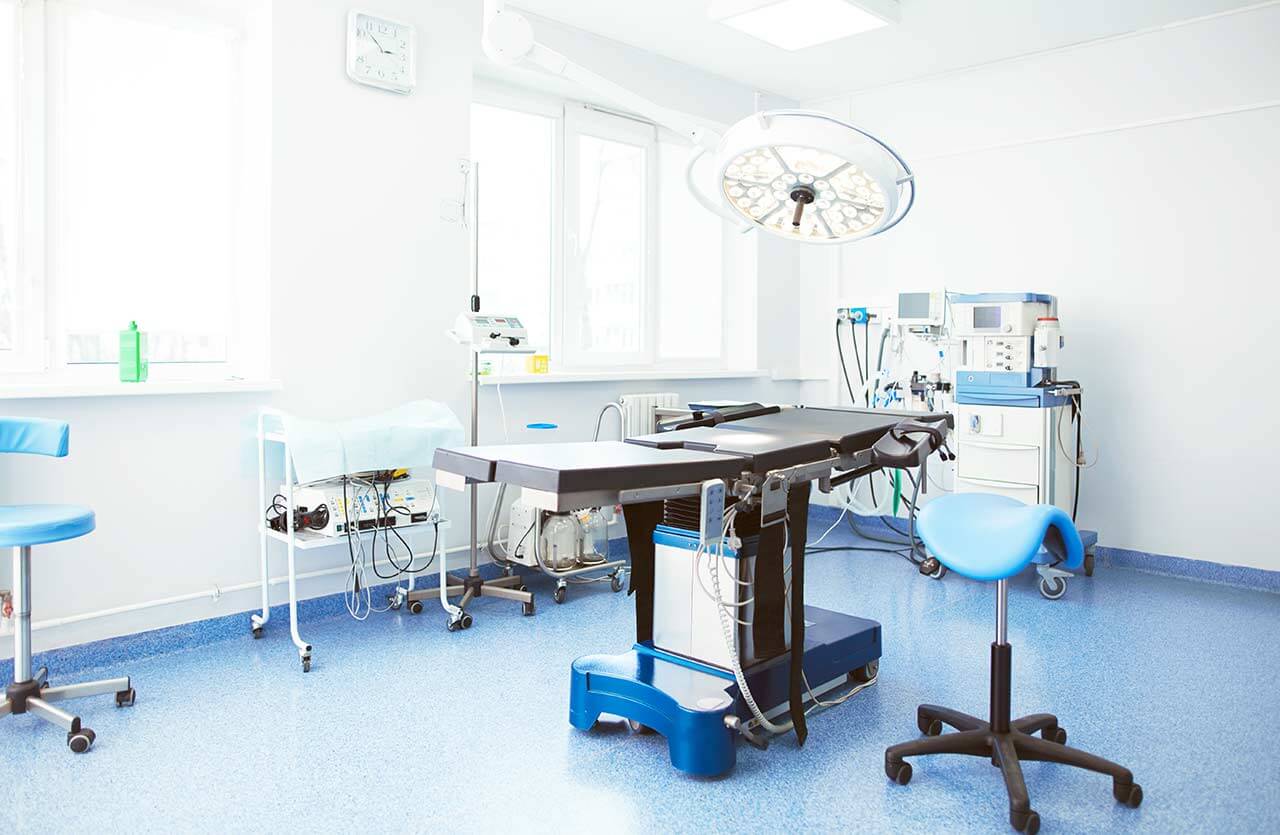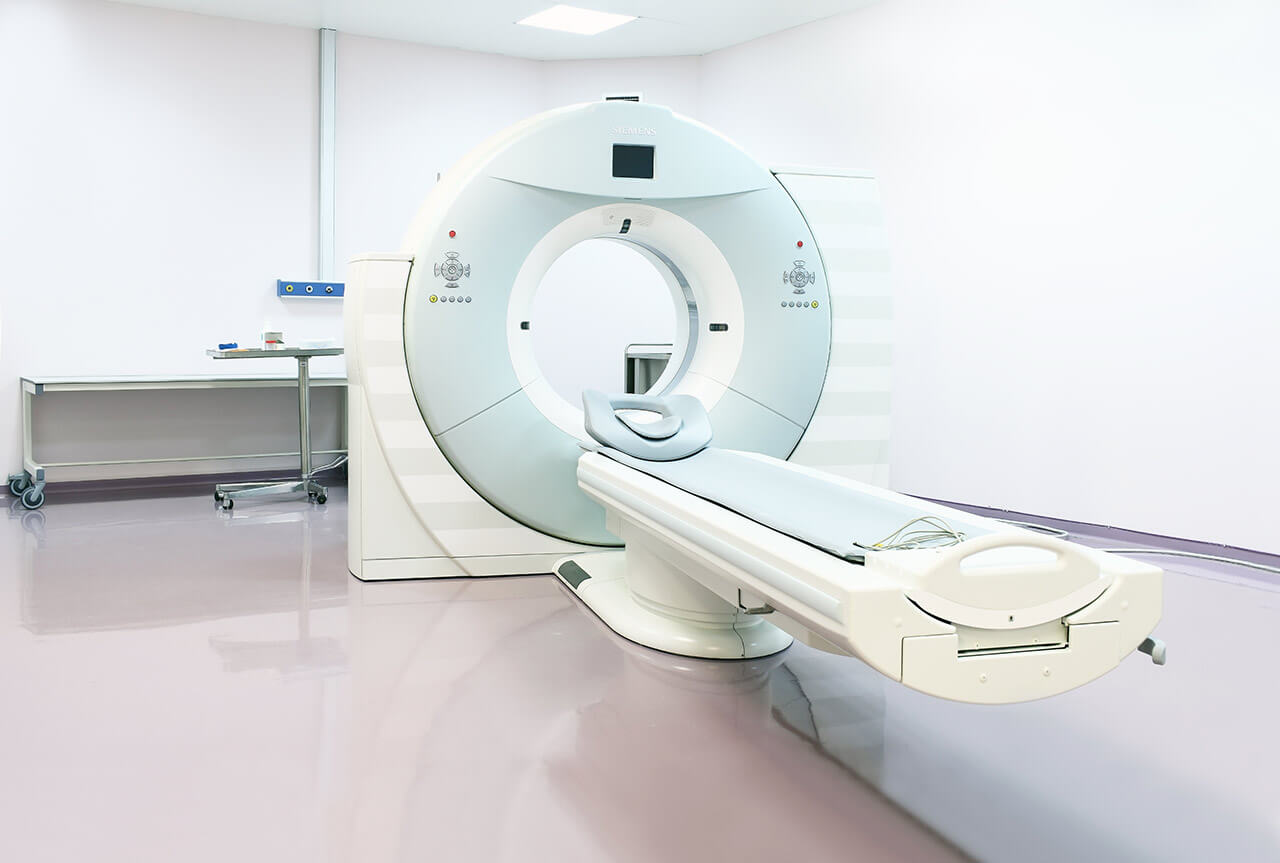
The program includes:
- Initial presentation in the clinic
- clinical history taking
- review of medical records
- physical examination
- laboratory tests:
- complete blood count
- general urine analysis
- biochemical analysis of blood
- inflammation indicators (CRP, ESR)
- indicators of blood coagulation
- neurological examination
- CT/MRI scan
- neuropsychological tests (if indicated):
- ENMG (electroneuromyography)
- EEG (electroencephalography)
- SEPs (somatosensory evoked potentials)
- VEPs (visually evoked potentials)
- BAEP tests (brainstem auditory evoked potentials)
- preoperative care
- MRI-guided laser ablation of brain metastases
- postoperative MRI control
- symptomatic treatment
- control examinations
- the cost of essential medicines and materials
- nursing services
- full hospital accommodation
- developing of further guidance by specialists
in oncology and radiotherapy
How program is carried out
During the first visit, the physician will conduct a clinical examination and neurological examination, and go through the results of the available diagnostic tests. After that, you will undergo the necessary additional examination, such as the laboratory blood and urine tests, MRI scan with obtaining 3D images and creating volumetric images of the whole brain. Based on the results of an additional examination, the physician will clarify the localization of brain metastases. After that, the preparation according to the preoperative standard will begin.
Laser ablation of metastases begins with the formation of access to the brain. When using a catheter with a laser fiber, a hole with a diameter of 3.2 mm is sufficient for this. The miniature size and flexibility of the catheter help preserve healthy brain tissue.
When the catheter reaches metastasis, energy is delivered through the laser fiber. Under the influence of high temperature, metastases are destroyed. The procedure is guided by real-time MRI. Surgeons also assess the temperature of healthy brain tissue using thermographic images to avoid overheating.
After the completion of the operation, you will be transferred to the ward, under the round-the-clock supervision of doctors and nurses. In several days, the attending physician will evaluate the results of the postoperative MRI scans, schedule the date of discharge from the hospital and give you detailed recommendations for further follow-up and treatment.
Required documents
- Medical records
- MRI/CT scan (not older than 3 months)
- Biopsy results (if available)
Service
You may also book:
 BookingHealth Price from:
BookingHealth Price from:
About the department
The Department of Neurosurgery at the Hirslanden Clinic Aarau offers the full range of modern diagnostics and treatment of diseases of the central and peripheral nervous system, including diseases, injuries and malformations of the skull and spine. The Chief Physician of the department is Prof. Dr. med. Aminadav Mendelowitsch.
The main focus in clinical practice is on the surgical treatment of cerebrovascular pathologies, brain tumors, trigeminal neuralgia and spinal diseases.
The department is proud of its outstanding medical and technical infrastructure – navigation systems, neuromonitoring systems, ultrasound devices and endoscopic systems. All these technologies make it possible to perform surgical manipulations with the highest accuracy and avoid damage to functionally important anatomical structures.
A highly qualified multidisciplinary team of experts in the field of neurosurgery, neurology, neuroradiology and neuropsychology takes care of the patients' health. All specialists work hand in hand to provide optimal individualized medical care. The patients can be admitted both on an inpatient and outpatient basis.
The department’s spectrum of surgical services includes:
- Microsurgical removal of brain tumors and the pituitary gland (in interdisciplinary collaboration with oncologists and radiation therapists)
- Surgical treatment of vascular diseases of the brain and spinal cord
- Aneurysms and vascular malformations
- Ventricular shunting for impaired cerebrospinal fluid outflow
- Treatment using the Gamma Knife system (at the Gamma Knife Center Hirslanden)
- Interventional neuroradiological procedures (in collaboration with the Cantonal Hospital Aarau)
- Surgical treatment of trigeminal neuralgia
- Microvascular decompression
- Selective rhizotomy
- Surgical treatment of hydrocephalus
- Shunting for cerebrospinal fluid diversion
- Treatment of malformations accompanied by cerebrospinal fluid outflow block
- Spinal surgery
- Surgical treatment of herniated discs
- Surgical treatment of spinal stenosis
- Stabilization for instability of all parts of the spine
- Surgical removal of spinal tumors
- Surgical treatment of syringomyelia
- Other therapeutic options
Curriculum vitae
Clinical Interests
- Cerebrovascular surgery (aneurysms, cerebrovascular malformations, ventricular shunting).
- Skull base surgery (brain tumors).
- Impaired cerebrospinal fluid circulation.
- Spinal surgery.
Professional Career
- June 2005 Professorship.
- December 2004 Visiting Professor for Neurosurgery, Huazhong University, Wuhan, China.
- 2003 Consulting Physician, Department of Neurosurgery (focus on skull base surgery), University Hospital Basel.
- 2000 - 2003 Senior Physician and Head of the Laboratory for Cerebrovascular Pathology at the Department of Neurosurgery of the University Hospital Basel.
- 1998 Foundation of the Working Group on Skull Base Surgery in northwestern Switzerland.
- 1996 Recognized International Fellow at George Washington University, Institute of Neurology, Washington, D.C., USA.
- 1995 - 1996 Specialization (scholarship) in cerebrovascular surgery and skull base surgery at George Washington University, Washington, D.C., USA.
- 1994 - 2000 Senior Physician, Department of Neurosurgery, University Hospital Basel.
Higher Education and Postgraduate Training
- 1999 Habilitation.
- 1994 Specialization in Neurosurgery, Swiss Medical Association.
- 1987 - 1994 Training in Neurosurgery in Basel and Bern.
- 1986 Doctoral thesis defense and doctorate.
- 1980 - 1986 Study of Human Medicine at the University of Basel.
Photo of the doctor: (c) Hirslanden AG
About hospital
The Hirslanden Clinic Aarau enjoys the status of one of the largest and most successful private medical facilities in Bern and Zurich. The clinic is part of the Hirslanden Network known in Europe, which is a provider of first-class medical services in Switzerland.
The main areas of specialization of the clinic in Aarau include cardiology, cardiac surgery, abdominal surgery, urology, oncology, neurosurgery, spinal surgery and orthopedics. The Department of Obstetrics annually delivers more than 700 babies. The high professionalism of the clinic’s medical staff, as well as the excellent technical base, make it possible to successfully cure not only common pathologies, but also very complex clinical cases.
All efforts of doctors and nursing staff of the clinic are focused on meeting the needs of patients and best possible restoration of their health. The work with patients is based on an individual approach to each clinical situation. The clinic has 155 beds for inpatient treatment. The surgical treatment is provided in 7 operating rooms with all the necessary surgical instruments, computer monitoring systems, navigation devices, robot-assisted systems for sparing laparoscopic operations.
Since 2010, the clinic introduced a unified quality management system, which includes all clinics in the Hirslanden Network. The clinical performance indicators and patient reviews are provided in the annual reports available to all those who want to see them. At the moment, the clinic rating is 8.9 out of 10 possible points – based on patient reviews. The clinic is also the first and only health facility in the canton of Aargau, which medical services were certified in accordance with the new ISO 2016 standards.
Photo: (с) depositphotos
Accommodation in hospital
Patients rooms
The patients of the Hirslanden Clinic Aarau live in cozy rooms equipped with everything necessary for a comfortable stay in the hospital. Each patient room has an ensuite bathroom with shower and toilet. The standard patient room includes an automatically adjustable bed, a bedside table, a wardrobe with lockers for storing personal belongings, a hairdryer, a table and chairs for receiving visitors, a TV and a radio. The patient rooms also have Wi-Fi access. If desired, the patients can live in enhanced-comfort patient rooms, which are additionally equipped with a safe, a refrigerator and upholstered furniture.
Meals and Menus
The patient and the accompanying person are offered a daily choice of three menus. If you are on a specific diet for any reason, you will be offered an individual menu. Please inform the medical staff about your dietary preferences prior to the treatment.
Further details
Standard rooms include:
Religion
The religious services can be provided upon request.
Accompanying person
During the inpatient program, an accompanying person may stay with the patient in the patient room or at a hotel. Our managers will help you choose the most suitable option.
Hospital accommodation
During the outpatient program, you can live in a hotel at the clinic.
Hotel
During the outpatient program, you can live in a hotel of your choice. Managers will help you choose the most suitable options.



